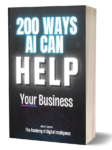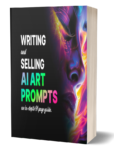Master How to Sell eBooks Online and Grow Your Business in 2025
Are you an aspiring author or publisher wondering if the digital landscape is ripe for your eBook’s success? The answer lies in understanding the vast potential of selling eBooks online.
Selling eBooks online has become a lucrative venture, offering authors and publishers a global reach without the constraints of traditional publishing routes.
With the right strategies, you can tap into this growing market and turn your digital content into a significant source of income.
Table of Contents
Key Takeaways
- Understanding the eBook market and its potential.
- Identifying the right platforms for selling eBooks.
- Crafting effective marketing strategies.
- Optimizing eBook visibility and sales.
- Leveraging reader engagement for sustained success.

Understanding the eBook Market
To succeed in selling eBooks online, it’s crucial to understand the current landscape of the digital publishing industry. The eBook market has witnessed significant growth, driven by advancements in technology and changes in reader preferences.
Current Trends in Digital Publishing
The digital publishing landscape is constantly evolving, with new trends emerging regularly. One key aspect is the rise of diverse genres and niches that cater to specific reader interests.
Popular Genres and Niches
Romance, thriller, and science fiction are among the most popular genres in the eBook market. Niche topics, such as specialized non-fiction and young adult fiction, also attract dedicated readerships.
| Genre/Niche | Average Price | Popularity Score |
| Romance | $4.99 | 8/10 |
| Thriller | $5.99 | 9/10 |
| Science Fiction | $6.99 | 8.5/10 |
Pricing Benchmarks
Pricing strategies vary widely in the eBook market. Understanding the average price points for different genres and niches is crucial for competitive pricing.
Identifying Your Target Audience
Knowing your target audience is vital for tailoring your content and marketing strategies. This involves understanding demographics, reading preferences, and purchasing behaviors.

Analyzing competitor eBooks helps in identifying market gaps and opportunities. It involves examining their content, pricing, marketing strategies, and reader reviews.
By understanding these aspects of the eBook market, authors and publishers can develop effective eBook sales strategies and digital book marketing campaigns.
Creating a High-Quality eBook Product
Creating an eBook that stands out in a crowded digital market requires attention to detail and a focus on quality. To successfully sell eBooks online, authors must ensure their product is professionally presented and appealing to their target audience.
Professional Formatting Standards
Professional formatting is crucial for a positive reading experience. It involves several key elements that enhance the readability and overall quality of the eBook.
Interior Design Elements
The interior design of an eBook includes margins, spacing, and chapter headings. Proper formatting ensures that the content is easy to read on various devices.
Typography Considerations
Choosing the right typography is vital. Fonts should be clear and legible on different screen sizes. Common fonts like Arial, Calibri, and Times New Roman are popular choices.
| Font Style | Readability Score | Device Compatibility |
| Arial | 8/10 | High |
| Calibri | 9/10 | High |
| Times New Roman | 7/10 | Medium |
Eye-Catching Cover Design
An eye-catching cover is essential for capturing potential readers’ attention. It should be relevant to the content and visually appealing.
Effective Pricing Strategies
Pricing is a critical factor in eBook sales. Authors must consider their target audience and the competition when setting a price.
Premium vs. Budget Pricing Models
Authors can choose between premium and budget pricing models. Premium pricing is suitable for high-quality, niche content, while budget pricing is better for attracting a larger audience.
| Pricing Model | Target Audience | eBook Quality |
| Premium | Niche readers | High |
| Budget | Mass market | Variable |
By focusing on these aspects, authors can create high-quality eBooks that appeal to their target audience and enhance their chances of success on various eBook sales platforms.
Essential Steps to Prepare Your eBook for Sale
Preparing your eBook for sale involves several crucial steps that can significantly impact its success. Ensuring your eBook is properly formatted and presented is key to attracting buyers and boosting sales.
Choosing the Right File Formats
One of the first steps in preparing your eBook is selecting the appropriate file formats. Different eBook retailers support various formats, so it’s crucial to understand the options.
EPUB vs. MOBI vs. PDF
The most common eBook formats are EPUB, MOBI, and PDF. EPUB is widely supported and offers reflowable text, making it ideal for most retailers. MOBI is primarily used for Amazon Kindle devices. PDF is more static and less adaptable to different screen sizes.
| Format | Supported Devices | Reflowable Text |
| EPUB | Most eReaders | Yes |
| MOBI | Amazon Kindle | Yes |
| All devices | No |
ISBN Acquisition and Copyright Protection
Acquiring an ISBN (International Standard Book Number) is essential for tracking sales and identifying your eBook in the market. Additionally, registering your copyright protects your work from unauthorized use.
Creating Compelling Book Descriptions
A well-crafted book description can entice potential buyers. It’s essential to highlight the main themes and unique selling points of your eBook.
Keyword Optimization Techniques
Using relevant keywords in your book description can improve its visibility in search results. Identify key terms that potential readers might use when searching for eBooks like yours.
Top Platforms to Sell eBooks Online
Authors now have a variety of options when it comes to choosing the right platforms to sell their eBooks online. The choice of platform can significantly impact an eBook’s visibility and sales. Here’s an overview of the major platforms authors can consider.
Amazon Kindle Direct Publishing
Amazon Kindle Direct Publishing (KDP) is one of the largest and most popular platforms for selling eBooks. It allows authors to publish their work in digital format and reach a vast audience.
KDP Select Benefits and Limitations
One of the key benefits of KDP is its KDP Select program, which offers promotional tools like Kindle Unlimited (KU) and Countdown Deals. While KDP Select can increase an eBook’s visibility, it requires exclusivity for 90 days, which might limit an author’s ability to sell on other platforms during that period.
Apple Books
Apple Books is another significant platform for eBook sales, especially for authors targeting iOS users. It offers seamless integration with Apple devices, making it a convenient choice for readers.
Barnes & Noble Press
Barnes & Noble Press allows authors to publish and sell their eBooks directly to readers through the Barnes & Noble online store. It’s a good option for authors looking to tap into the Nook market.
Kobo Writing Life
Kobo Writing Life is Kobo’s self-publishing platform that enables authors to publish their eBooks to a global audience. It’s known for its user-friendly interface and wide distribution network.
Smashwords and Draft2Digital
Smashwords and Draft2Digital are platforms that help authors distribute their eBooks to multiple retailers, including Apple Books, Barnes & Noble, and Kobo. They simplify the process of getting eBooks into various stores.
Here’s a comparison of the major eBook sales platforms:
| Platform | Distribution | Notable Features |
| Amazon KDP | Amazon | KDP Select, Kindle Unlimited |
| Apple Books | Apple Devices | Seamless integration with iOS |
| Barnes & Noble Press | Barnes & Noble | Access to Nook market |
| Kobo Writing Life | Kobo Devices | User-friendly interface |
| Smashwords/Draft2Digital | Multiple Retailers | Wide distribution network |
Setting Up Your Website to Sell eBooks
Establishing a personal website is a crucial step for authors looking to sell eBooks directly to their readers. This approach not only enhances the author’s online presence but also provides a platform to connect directly with the target audience.
Website Platform Options
Choosing the right website platform is vital for a seamless eBook selling experience. Two popular options are WordPress with WooCommerce and Shopify.
WordPress with WooCommerce
WordPress is a versatile and widely used platform that, when paired with WooCommerce, offers a robust e-commerce solution. It allows for extensive customization and has a large community of developers who create extensions and themes.
Shopify for Digital Products
Shopify is a dedicated e-commerce platform that supports digital product sales. It is user-friendly and provides a streamlined experience for both sellers and buyers.
| Platform | Customization | Ease of Use | Cost |
| WordPress with WooCommerce | High | Moderate | Variable |
| Shopify | Moderate | High | Subscription-based |
Payment Processing Solutions
To sell eBooks online effectively, a reliable payment processing solution is necessary. Popular options include PayPal, Stripe, and Square, each offering different benefits and fees.
Digital Rights Management Considerations
Digital Rights Management (DRM) is a critical aspect to consider when selling eBooks online. It involves protecting the eBook from unauthorized copying and distribution. Authors must weigh the benefits of DRM against the potential inconvenience to legitimate customers.
How to Sell eBooks Online Through Social Media
Social media has revolutionized the way authors connect with readers and sell their eBooks. By leveraging these platforms effectively, authors can significantly boost their online presence and drive sales.
Building an Author Platform
Establishing a strong author platform on social media is the first step towards successful eBook marketing. This involves creating professional profiles on relevant platforms and engaging with potential readers.
Content Marketing Strategies
Content marketing is a powerful tool for promoting eBooks. It involves creating and sharing valuable content to attract and retain a clearly defined audience.
Blog Posts and Guest Articles
Writing blog posts and guest articles is an effective way to showcase your expertise and promote your eBook. By sharing your knowledge and experiences, you can build credibility and attract potential readers.
Video Marketing on YouTube
YouTube is a vast platform for video marketing. Authors can create book trailers, author interviews, and other engaging content to promote their eBooks and connect with their audience.
Paid Advertising Campaigns
Paid advertising on social media platforms can significantly enhance your eBook’s visibility. By targeting specific demographics and interests, you can reach potential readers who are more likely to be interested in your work.
Facebook and Instagram Ads
Facebook and Instagram offer robust advertising options that allow authors to target their audience with precision. By creating compelling ads, authors can drive traffic to their eBook sales pages.
Amazon Advertising
Amazon Advertising provides authors with the opportunity to promote their eBooks directly to potential readers on the Amazon platform. By using Amazon’s advertising tools, authors can increase their eBook and drive sales.
Email Marketing Strategies for eBook Sales
In the competitive world of eBook sales, email marketing stands out as a highly effective promotional technique. By building a strong connection with potential readers, authors and publishers can significantly boost their eBook’s visibility and drive sales.
Building Your Subscriber List
Creating a robust subscriber list is the foundation of any successful email marketing campaign. This involves enticing potential readers to sign up for your mailing list by offering value in return.
Lead Magnet Creation
A lead magnet, such as a free eBook chapter or a discount on your eBook, can be an effective way to encourage sign-ups. Ensure that your lead magnet is relevant and appealing to your target audience.
Creating Effective Email Campaigns
Crafting compelling email campaigns is crucial for converting subscribers into buyers. This involves creating engaging content, using persuasive subject lines, and including clear calls-to-action.
Automation and Follow-up Sequences
Automation can streamline your email marketing efforts, allowing you to reach your audience at the right time. Follow-up sequences, such as drip campaigns, can nurture leads and encourage purchases.
Drip Campaign Examples
Drip campaigns involve sending a series of emails to subscribers over time. For example, you could send an introductory email, followed by emails highlighting different aspects of your eBook, and finally, an email offering a special promotion.
Maximizing Sales with Promotional Techniques
To boost your eBook sales, it’s essential to implement effective promotional techniques that capture the attention of potential readers. Various strategies can be employed to increase visibility and drive sales in the competitive eBook market.
Limited-Time Discounts and Deals
One effective way to promote your eBook is by offering limited-time discounts or deals. This strategy creates a sense of urgency among potential buyers, encouraging them to make a purchase sooner rather than later.
Platforms like Amazon often feature discounted eBooks, making them more visible to readers browsing for deals.
Free Days and Countdown Deals
Another promotional technique is to offer your eBook for free for a limited time or run a countdown deal, where the price is gradually reduced until it reaches a certain point. These strategies can significantly boost your eBook’s visibility and attract new readers.
Bundle Offers and Series Marketing
Bundle offers involve packaging multiple eBooks together at a discounted price. This strategy is particularly effective for series marketing, where readers are encouraged to buy multiple books in a series.
Box Set Creation Strategies
Creating a box set of your eBook series can be an attractive offer for readers. It not only provides value but also makes your work stand out in the market.
Cross-Promotion with Other Authors
Collaborating with other authors in your genre can be mutually beneficial. Cross-promotion involves promoting each other’s work to your respective audiences, thereby expanding your reach.
This strategy can be particularly effective when done with authors who have a similar target audience.
Tracking and Analyzing Your eBook Sales
Understanding your eBook sales performance is key to making informed decisions in the competitive online ebook publishing market. By closely monitoring your sales data, you can identify trends, capitalize on opportunities, and adjust your strategies accordingly.
Essential Metrics to Monitor
To effectively track your eBook sales, focus on metrics such as sales volume, revenue, and customer demographics. These insights will help you understand your audience better and tailor your marketing efforts.
Conversion Rates and ROI
Conversion rates indicate the percentage of visitors who make a purchase, while ROI (Return on Investment) measures the profitability of your marketing campaigns. Monitoring these metrics helps in optimizing your marketing spend.
Sales Dashboard Tools
Utilizing sales dashboard tools can simplify the process of tracking your eBook sales. These tools provide a centralized platform to monitor key metrics and analyze sales data in real-time.
Using Data to Improve Marketing Efforts
Analyzing your sales data allows you to refine your marketing strategies. By understanding what works and what doesn’t, you can make data-driven decisions to enhance your marketing efforts.
A/B Testing Strategies
A/B testing involves comparing different versions of your marketing materials to determine which performs better. This strategy can be applied to various elements, such as email subject lines or ad creatives, to optimize your campaigns.
Conclusion: Building Long-Term Success in eBook Sales
Successfully selling eBooks online requires a combination of quality content, effective marketing, and strategic planning. By understanding the eBook market, creating a high-quality product, and utilizing various sales platforms, authors can increase their chances of success.
To build long-term success in eBook sales, it’s essential to continually adapt and improve marketing efforts. This includes leveraging ebook marketing tips, such as email marketing strategies, social media promotion, and promotional techniques like limited-time discounts and bundle offers.
By tracking and analyzing eBook sales data, authors can refine their marketing strategies and make informed decisions to optimize their sales. With persistence and a willingness to learn, authors can achieve their goals and build a loyal reader base, ultimately mastering how to sell eBooks online.
FAQ
What are the best platforms to sell eBooks online?
The best platforms to sell eBooks online include Amazon Kindle Direct Publishing, Apple Books, Barnes & Noble Press, Kobo Writing Life, and Smashwords/Draft2Digital. Each platform has its benefits and limitations, and authors can choose the ones that best suit their needs.
How do I price my eBook competitively?
To price your eBook competitively, you should research your target audience, analyze competitor eBooks, and consider pricing benchmarks in your genre. You can also experiment with different pricing models, such as premium or budget pricing, to find what works best for your eBook.
What file formats are best for eBook distribution?
The best file formats for eBook distribution are EPUB, MOBI, and PDF. EPUB is the most widely supported format, while MOBI is specifically designed for Amazon Kindle devices. PDF is a more static format that can be useful for certain types of eBooks, such as those with complex layouts.
How can I promote my eBook on social media?
To promote your eBook on social media, you can build an author platform, create engaging content, and run paid advertising campaigns on platforms like Facebook, Instagram, and Amazon. You can also leverage video marketing on YouTube and collaborate with other authors to expand your reach.
What are some effective email marketing strategies for eBook sales?
Effective email marketing strategies for eBook sales include building a subscriber list, creating compelling email campaigns, and using automation and follow-up sequences. You can also use lead magnets to entice readers to join your list and create drip campaigns to nurture your leads.
How can I track and analyze my eBook sales?
To track and analyze your eBook sales, you can use sales dashboard tools to monitor essential metrics like conversion rates and ROI. You can also use A/B testing strategies to optimize your marketing efforts and improve your sales over time.
What are some promotional techniques to maximize eBook sales?
Some promotional techniques to maximize eBook sales include limited-time discounts, free days, countdown deals, bundle offers, and cross-promotion with other authors. You can also create box sets and series marketing campaigns to boost your sales and attract new readers.
How do I create a high-quality eBook product?
To create a high-quality eBook product, you should focus on professional formatting standards, eye-catching cover design, and effective pricing strategies. You should also consider interior design elements, typography considerations, and premium or budget pricing models to make your eBook attractive to potential buyers.





